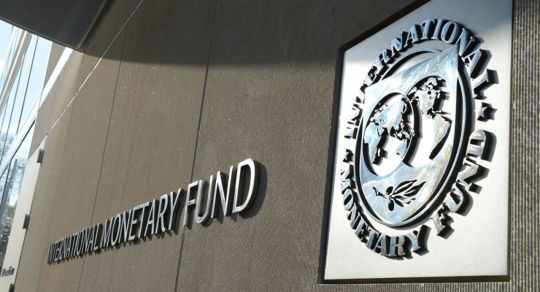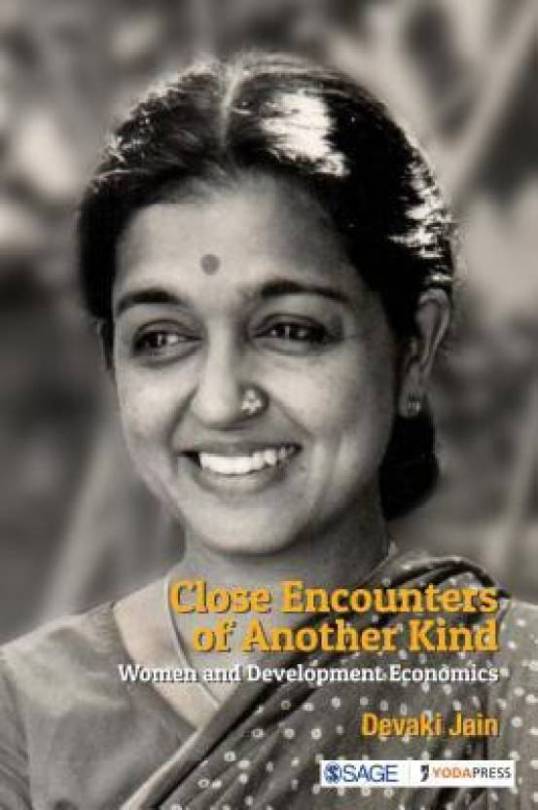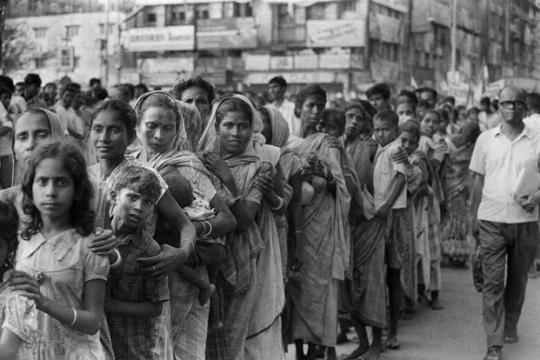#DevelopmentEconomics
Explore tagged Tumblr posts
Text
Triangular Alliance: Unlocking Socio-Economic Progress through Government, NGOs, and Private Sector Collaboration"
“Triangular Alliance: Unlocking Socio-Economic Progress through Government, NGOs, and Private Sector Collaboration” In the contemporary world, socio-economic development is a multidimensional challenge requiring coordinated efforts from various stakeholders. While governments set policies and frameworks, NGOs and private sector actors bring unique resources, expertise, and grassroots…
#DevelopmentEconomics PublicPrivatePartnership Governance UPSCPreparation SustainableDevelopment#DevelopmentEconomics#Governance#PublicPrivatePartnership#SustainableDevelopment#UPSCPreparation
0 notes
Text
Explore comprehensive content for Sem 5 Introductory Development Economics at ArthaPoint. This course provides in-depth insights into key development concepts, theories, and applications, tailored for economics students seeking excellence.
0 notes
Text
#EconomicsClasses#EconomicsEducation#LearnEconomics#Economics101#EconomicsStudent#EconomicsMatters#EconomicsLesson#EconomicTheory#Microeconomics#Macroeconomics#InternationalEconomics#LaborEconomics#DevelopmentEconomics#EnvironmentalEconomics#FinancialEconomics#AppliedEconomics#EconomicPolicy
0 notes
Text
youtube
Exploring Microeconomics of Development: Dr. Prakarsh Singh
Dive into the intricate world of microeconomics and development with Dr. Prakarsh Singh! This insightful video unpacks the nuances of economic development, offering a comprehensive exploration of key concepts. Whether you're a student, economist, or simply curious about economic dynamics, this talk is a must-watch.
0 notes
Text
Globalisation and Its Discontents: Review and Reflection

The main argument of this book is that globalisation can do a lot of good, only if the policies are free from politics, and the characteristics of each country is taken into account. However, if the policies are implemented improperly, globalisation can increase instability, inequality, poverty as well as vulnerability to external shocks.
According to Stiglitz, pro-globalisation policies are politically-driven and unfair to developing countries. The blame, according to the book, should be on global economic institutions such as the IMF, the World Bank and the US Treasury, which adopted the free-market ideologies (Washington Consensus) in the early 1990s. He accuses them as flawed and detrimental.
Stiglitz credits John Maynard Keynes who helped found the IMF, which was originally created to assist developing countries to grow at full employment. Its original conception for the foundation of the IMF was based on the belief that markets do not normally work well, and countries may not be able to get the needed funds to help restore the economy. Over the years, the IMF’s ideologies have changed significantly. It now favours free-market ideologies, which was completely contrary to what it was created for. Furthermore, Stiglitz accuses the IMF as being concerned with meeting the interests of the financial community than with fulfilling its original mandate.
The main Washington Consensus policies that Stiglitz criticises throughout the book are fiscal austerity, trade liberalisation and privatisation. Rather than understanding the issues a country was facing, the IMF imposed one-size-fits-all policies on all countries without considering their circumstances.
I believe that these policies are not harmful, but only if they are implemented in the right time and and order. Stiglitz uses the example of Russia, on which the IMF imposed rapid privatisation before free-market foundations were set up properly, which led to asset stripping of privatised Russian firms. According to Stiglitz, privatisation without land reform or strong competitive policies would result in crony capitalism, large businesses run by organised crime, and a feudal social structure without the middle class.
The issue of trade liberalisation is also central to the argument of this book. Conventional economic theories suggest that opening up trade would benefit both developed and developing countries as the developing countries can use their comparative advantage and cheap labour to sell their goods to the developed countries. This would lead to economic growth as exports grow. However, there is also a counter argument to this. Large firms from developed countries have more advanced goods, which may sometimes be at lower prices. This causes the domestic firms in developing countries to find it extremely difficult to compete with these large firms. This can lead to unemployment and decreasing living standards, which go against the goal of trade liberalisation in the first place. Again, pacing and sequencing is key here. Stiglitz strongly believes that government should adopt a gradualist approach to liberalisation. Sometimes delaying the process of liberalisation until the domestic industries are strong enough is key to long term growth of developing countries. However, the problem lies in the fact that the IMF has the bargaining power. It has the funds that the developing countries much needed, and it would not lend the money if the countries do not comply with its ideologies.
Another policy that the IMF imposes on many developing countries is capital liberalisation. The problem with this policy is the flow of hot money. Capital liberalisation allows freer flow of hot money, which can cause bubbles to form and exchange rates to be volatile. Therefore, the developing countries became increasingly vulnerable during economic downturns as foreign investors withdraw their money from the countries, and cause depreciation of the currencies. For these reasons, I agree with Stiglitz that capital liberalisation is not helpful to growth, and should be regulated by the government.
The IMF’s austerity and high interest rate measures as a cure to economic crises is severely criticised by Stiglitz. The IMF’s justification of their policies is that when there is a crisis, the government is running budget and/or trade deficits. As the deficits increase, fewer lenders are willing to lend to the country. As a result, the government has to resort to money printing, which would cause inflation and further depreciation of the currency. This, in turn, leads foreign investors to withdraw their money from the country. Therefore, the IMF’s argues that interest rates must be raised to stop outflow of capital while the government must increase taxes and cut spending to achieve budget balance before any recovery can take place. However, Stiglitz argues that these policies will lead to widespread bankruptcies without legal protection, massive unemployment without a social safety net, and the prompt withdrawal of foreign capital. As a result policies worsen the crisis and create social conflicts such as in Greece.
In the newly written section, Stigllitz emphasises how globalisation is hurting the middle class and the working class throughout the World. He argues that the benefits of globalisation only go to the corporate establishments.
He also points out the flaws of Trump’s protectionist policies. Trump assumes that trade is a zero-sum game, in which one nation’s gain is another’s loss. This is a flawed way of thinking, as US consumers benefit from cheap Chinese goods. Trump’s trade war will hurt the US citizens. Prices will increase as a result of tariffs on Chinese goods. In response, China would also put up its tariffs which would hurt the US exporting sectors.
0 notes
Text
UN Job Openings in the Professional and Higher Categories for the week of 21-28 April 2022
80 UN Job Openings Professional and Higher Categories Advertised during the week of 21-28 April 2022 #Jobs #UNJobs #JobSearch #Jobseeking
Job TitleLevelJob IDJob NetworkDepartment/OfficeDuty stationDeadlineEconomic Affairs Officer P-3179211Economic, Social and DevelopmentEconomic Commission for AfricaNIAMEY10/06/2022PROCUREMENT OFFICER P-3180119Logistics, Transportation and Supply ChainOffice for the Coordination of Humanitarian AffairsGENEVA10/06/2022CHIEF OF SECTION, ECONOMIC AFFAIRS P-5177535Economic, Social and…

View On WordPress
0 notes
Text
Close Encounters of Another Kind

Close Encounters of Another Kind, Author: Devaki Jain, Publish Year: August 2018, Discount: 11.00%, Price: ₹ 975.00, ISBN: 9789352807710, Publisher: SAGE YODA Press
Close Encounters of Another Kind by Devaki Jain, Buy Books Online, Buy International Law Online, Buy Professional Books, Technical Bookstore, Online Book Store, Best Book Seller in India
#CloseEncountersofAnotherKind #DevakiJain #ISBN 9789352807710 #DevelopmentEconomics #FirstWorldConferenceofWomen #SAGEYODAPress #Discount #FreeShipping #OnlineBookStore
To Know More Or To Buy Visit@ http://bit.ly/2RxxiJA
0 notes
Text
@Griantek: RT @UCDavisARE: Congratulations 2018 Ph.D. graduate Huang Chen who will soon join the School of Economics and Chow Center for Economic Research at Xiamen University as an assistant professor! #UCDavis #DevelopmentEconomics #PhD https://t.co/f1sH0jwBUS https://t.co/b8X2upWLFD
from http://twitter.com/Griantek via IFTTT
0 notes
Link
"I’ve taken a keen interest in Pep’s footballing philosophy and, to my delight, have found some similarities with current thinking about the politics of development. In short, both rely on creating the conditions for collective action among groups and individuals to overcome an opponent: whether that be Steaua Bucharest or anti-poor vested interests. [..] Over the past few years a growing number of people in the development industry have been persuaded by the idea that the problems of development are largely political problems. [..] we have argued that political economy analysis ought to be embedded in development programmes as an aid to identifying the vested interests that block developmental change, and creating the political coalitions that can prevail against them. One of the tools we use is stakeholder analysis. Stakeholder analysis, as we practice it, involves mapping the actors that are either for, against, or ambivalent about a development reform. [..] Just as in Pep’s juego de posicion, a key tactic for development reformers is to connect isolated actors with an interest in reform, forming a structure or network that allows them to outmanoeuvre the reform blockers. Sometimes this can be done just by bearing the costs of bringing these actors closer together so that they can strategise together. Sometimes it is a little more complicated. Pep’s training also involves extensive work on body position, so that players are perfectly placed to receive the ball and pass it on. We also encourage actors to position themselves, politically, as part of the process of forging alliances with actors who may share a common interest but who have a slightly different understanding of the problem at hand. Indeed, positional play in the field of development takes place not just on a physical plane (adjusting the material benefits available to players) but also an intellectual one (reshaping the way actors think about an issue). [..] in real life development issues are rarely as simple as this. [..] before a match he assesses the strengths and weaknesses of opponents and during a match he is constantly evaluating the play and changing formation accordingly. In similar fashion, we recommend that development reformers regularly reassess their assumptions and strategies before making appropriate changes. [..] Development reformers should have a range of options based on educated guesses about what might work, make ‘small bets’, then scale up or wind down on the basis of feedback. This marks a departure from most development programming, which typically invests a lot in engineering excellent upfront technical design, which it then stubbornly tries to implement even in the face of a confounding reality. The problem with that approach is that it’s all a bit, well, Manuel Pellegrini."
0 notes
Text
Economics Classes in Singapore: Understand economic principles and policies with our Economics classes in Singapore. Explore topics such as microeconomics, macroeconomics, and global economics to gain insights into economic systems.
#EconomicsClasses#EconomicsEducation#LearnEconomics#Economics101#EconomicsStudent#EconomicsMatters#EconomicsLesson#EconomicTheory#Microeconomics#Macroeconomics#InternationalEconomics#LaborEconomics#DevelopmentEconomics#EnvironmentalEconomics#FinancialEconomics#AppliedEconomics#EconomicPolicy
0 notes
Text
Development as Freedom by Amartya Sen: Review and Reflection

I have found Amartya Sen’s Development as Freedom very thought-provoking. Sen’s thesis is that freedom is the goal and purpose of development. Development is the process of getting rid of unfreedom and expanding people’s capabilities so that they can “lead the kinds of life they value.” Therefore, measuring development through standard figures such as GNP per capita is misleading as they only emphasise wealth, which sometimes does not come with freedom. Sen further establishes the link between freedom and well-being, thus accentuating the sometimes faulty prediction of standard economic figures.
Sen mentions five types of freedoms including political freedom, economic facilities, social opportunities, transparency guarantee and protective security. He argues that freedom is a good determinant of individuals’ social effectiveness and initiatives, both of which enhance the ability of individuals to help themselves. Thus, poverty is defined as the deprivation of individuals’ basic capabilities.
Sen favours free market as it means freedom to transact and freedom to choose work. However, he believes that we cannot rely on free market alone, as market institutions are also needed. He argues that successful markets are not only successful on the basis of allowing people to transact, but also on solid foundation of institutions and behavioural ethics. Sen also believes that the government has a crucial role in providing services such as education and health care.
On the issue of democracy, Sen argues for democratic values, firstly because freedom contributes to well-being and secondly because the society needs the right to debate in order to choose what social and economic needs are to be valued. Also, democratic values prevent harmful development as they provide vital mechanisms (such as voting) that force political leaders to act in the interest of the public, and also mechanisms (such as free press) that force the government to listen to the suffering groups. He provides a striking example that no famine has ever occurred in democratic countries no matter how terrible the economic situation is. Sen mentions that famine is surprisingly easy to prevent. Those that occurred were the result of a lack of free press and also the government’s negligence. One of the main causes of the Great Famine in China in 1958-61 was the fact that the government did not know what was happening in the provinces as they only relied on massages from people whose interest was to distort the message.
In my view, I agree that merely looking at economic data such as GDP per capita is misleading as our societies are much more complex and cannot be represented only through these figures. However, Sen does not mention the method of measuring freedom, which I believe can be quite problematic. Even though there is one, I would still be skeptical that we are ready to move on from growth and GDP to a more freedom-based goals due to many potential problems. This debate will ultimately come back to the ongoing GDP vs. well-being debate.
On another issue, Sen argues that freedom is the ability of individuals to “lead the kinds of life they value”, which is ambiguous. I would argue that not all kinds of life people value will be beneficial for the overall good. It is true that freedom is a virtue, but freedom can also lead to people doing undesirable things. What if country A’s citizens value the life of a conqueror and start to attack other countries? Can people with freedom be contained?
0 notes
Text
@UCDavisARE: Congratulations 2018 Ph.D. graduate Huang Chen who will soon join the School of Economics and Chow Center for Economic Research at Xiamen University as an assistant professor! #UCDavis #DevelopmentEconomics #PhD https://t.co/f1sH0jwBUS https://t.co/b8X2upWLFD
from http://twitter.com/UCDavisARE via IFTTT
0 notes